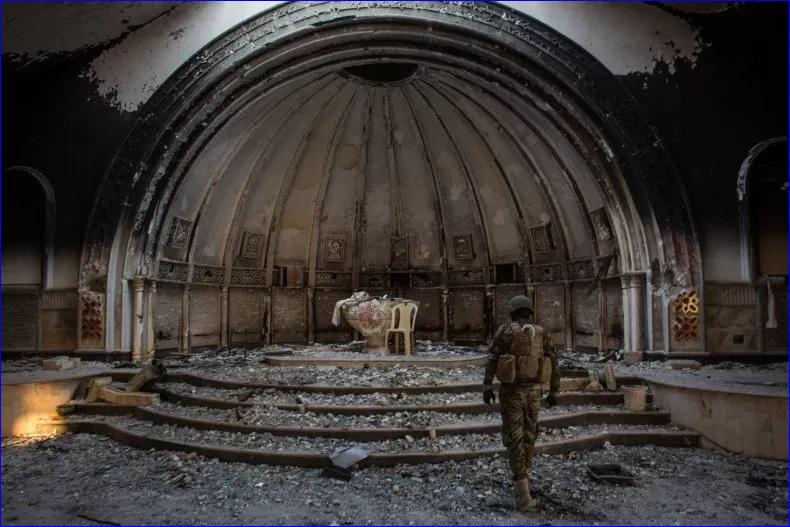


 Safin Hamid/AFP)
Safin Hamid/AFP)
My grandmother was Assyrian. She hailed from Iraq, spoke modern Aramaic, and prayed like clockwork each morning before preparing breakfast. My grandmother's story seems unremarkable, but to take her story at face value would do a disservice to her struggles as an Assyrian.
Having faced decades of persecution, namely during the 1914-1923 Assyrian genocide (Seyfo), the Assyrian community in Iraq has been decimated. An estimated 150,000 Assyrian Christians reside in their homeland today, primarily in mountainous northern Iraq. However, perceiving the existence of Assyrians in Iraq as stable is a grave misunderstanding. ISIS' 2014 takeover of Mosul had pernicious consequences for Assyrians, as they were forced to flee to areas governed by the Kurdistan Regional Government (KRG). Remaining Christians had to reluctantly either pay the jizya tax imposed on non-Muslims, convert to Islam, or face death. What's more, ancient Assyrian artifacts located in the historic Nimrud and Tikrit were desecrated or outright destroyed by ISIS militants.
With the nightmarish circumstances faced by Assyrian Christians deepening each day, the U.S. must come to the aid of Iraq's Indigenous people. President Trump may very well be the mediator Assyrians need.
Amid silence from the U.S. and international community, Assyrians continue to be persecuted on their native lands, having to surrender both their property and human rights. Iraqi government officials do not seek to ameliorate the ethnic group's struggles; in fact, influential party officials only aggravate the situation Assyrians face.

 Chris McGrath/Getty Images)
Chris McGrath/Getty Images)
Emad Matti, a media official for the Chaldean Church of Kerkeslokh, told Iraq's Shafaq News that "89 properties have been seized by individuals, influential people, and parties. One party is still occupying a Christian's house and refuses to leave." More egregiously, an anonymous Assyrian-Chaldean woman told the SyriacPress that her house in Baghdad's Karada neighborhood "was sold to other people," forcing her to "move out of it."
If Trump were to shift his efforts in safeguarding Christians in Iraq, his mission would be personal. Alina Habba, the counselor to the president, is herself a Chaldean whose parents hail from Baghdad. While on the campaign trail, Habba rallied Michigan's prominent Assyrian-Chaldean community to vote for the current president. In a speech at the Shenandoah Country Club in West Bloomfield, Mich., Habba said, "In particular with the Chaldean community, my community, we can flip this state and we have to do it or we will lose our country." Leveraging the presence of a Chaldean in Trump's Cabinet may very well further the cause of Assyrians.
The oppression Assyrians face in Iraq persists. The indelible impact Assyrians have made on modern-day Iraq has largely been reduced to rubble. While our community knows our history, non-Assyrians may not, making the preservation of ancient artifacts even more critical.
President Trump has the ability to spark positive change in the lives of Iraq's persecuted Assyrian Christians. Our plight is a bonafide opportunity to combat anti-Christian bias on all fronts. The time to act is now.
Sarah Behjet is a high school student from Connecticut. Her work has been featured in The Connecticut Mirror, CT Insider, Yale Daily News, Journal of Student Research, and others.
Sarah Behjet is a high school student from Connecticut. Her work has been featured in The Connecticut Mirror, CT Insider, Yale Daily News, Journal of Student Research, and others.

or register to post a comment.